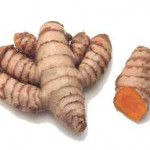 NCB-02 is a standardized curcumin (a chemical in turmeric) preparation that has been used with positive results in an animal model of ulcerative colitis.
NCB-02 is a standardized curcumin (a chemical in turmeric) preparation that has been used with positive results in an animal model of ulcerative colitis.
Now, researchers at the All India Institute of Medical Sciences, in New Delhi, tested it in people. Continue reading NCB-02 to treat ulcerative colitis →
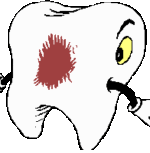 Periodontal diseases often lead to tooth loss. The most common forms include gingivitis and periodontitis, which are caused by plaque bacteria around the gums.
Periodontal diseases often lead to tooth loss. The most common forms include gingivitis and periodontitis, which are caused by plaque bacteria around the gums.
Researchers at Rangoonwala College of Dental Sciences and Research Centre, in Maharashtra, India, studied the effects of curcumin mouthwash. Here are their results and a summary of other recent studies. Continue reading Curcumin to treat gingivitis →
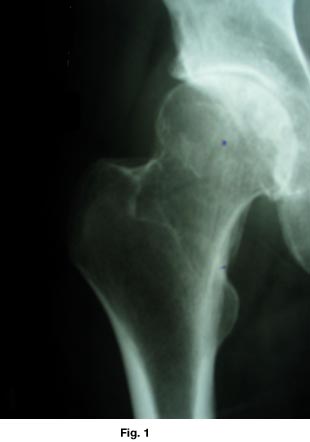 Former Medical Director, of the Rosenthal Center for Complementary & Alternative Medicine, at Columbia University Medical Center, in New York City, Dr. James Dillard, reviewed the evidence.
Former Medical Director, of the Rosenthal Center for Complementary & Alternative Medicine, at Columbia University Medical Center, in New York City, Dr. James Dillard, reviewed the evidence.
Here’s what we know. Continue reading Complementary treatments for osteoarthritis →
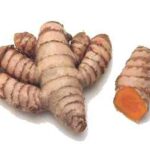 Researchers at Vardhman Mahavir Medical College and Safdarjung Hospital, in New Delhi, India, studied the effect of curcumin on pain and fatigue following laparoscopic cholecystectomy (gallbladder surgery). Continue reading Turmeric (curcumin) improves postoperative pain and fatigue →
Researchers at Vardhman Mahavir Medical College and Safdarjung Hospital, in New Delhi, India, studied the effect of curcumin on pain and fatigue following laparoscopic cholecystectomy (gallbladder surgery). Continue reading Turmeric (curcumin) improves postoperative pain and fatigue →
 Dr. Keith Wollen at Washington State University, in Port Angeles, has written a review of treatment options.
Dr. Keith Wollen at Washington State University, in Port Angeles, has written a review of treatment options.
Let’s focus on CAM. Continue reading Review: CAM for treating Alzheimer’s disease →
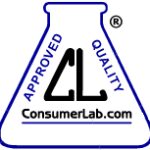 Supplements containing turmeric and its key compound, curcumin, may be helpful in treating inflammatory diseases and other conditions.
Supplements containing turmeric and its key compound, curcumin, may be helpful in treating inflammatory diseases and other conditions.
ConsumerLab.com reports some problems with 2 of 10 products tested. Continue reading Product report: Turmeric and curcumin →
 Researchers at Central South University, in Hunan, China studied the effect of curcumin (turmeric) on drug metabolizing enzymes.
Researchers at Central South University, in Hunan, China studied the effect of curcumin (turmeric) on drug metabolizing enzymes.
Their findings suggest a risk for curcumin-drug interactions. Continue reading Risk of curcumin-drug interactions →
 Researchers from Bethesda North Hospital Pharmacy, in Cincinnati, Ohio reviewed the evidence for using supplements to treat osteoarthritis and rheumatoid arthritis. Continue reading May is arthritis awareness month →
Researchers from Bethesda North Hospital Pharmacy, in Cincinnati, Ohio reviewed the evidence for using supplements to treat osteoarthritis and rheumatoid arthritis. Continue reading May is arthritis awareness month →
 Most of patients with moderate-to-severe disease are in a constant catabolic state resulting in poor weight gain and growth failure.
Most of patients with moderate-to-severe disease are in a constant catabolic state resulting in poor weight gain and growth failure.
Researchers at Columbia University College of Physicians & Surgeons, in New York City studied whether an exclusion diet combined with nutraceutical therapy could induce sustained remission of disease with weight gain, and enhance the ability for growth hormone to reverse growth failure. Continue reading Nutraceutical therapy to treat juvenile Crohn’s disease →
 Dr. Sharon Jacob from the University of Miami/Jackson Memorial Medical Center in Florida and colleagues reviewed the scientific support for herbals used by patients with psoriasis.
Dr. Sharon Jacob from the University of Miami/Jackson Memorial Medical Center in Florida and colleagues reviewed the scientific support for herbals used by patients with psoriasis.
Here are the highlights.
Continue reading Herbals to treat psoriasis: A review of the evidence →
 Encouraging findings in a small group of patients are reported by researchers at Columbia University College of Physicians & Surgeons, in New York. Continue reading Exclusion diet + nutraceutical therapy to treat juvenile Crohn’s disease →
Encouraging findings in a small group of patients are reported by researchers at Columbia University College of Physicians & Surgeons, in New York. Continue reading Exclusion diet + nutraceutical therapy to treat juvenile Crohn’s disease →
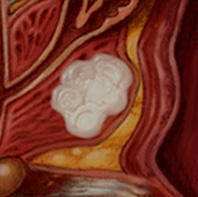 Laboratory research suggests that Zyflamend — an extract containing 10 herbs — decreases prostate cancer growth.
Laboratory research suggests that Zyflamend — an extract containing 10 herbs — decreases prostate cancer growth.
Now, researchers from the Center for Holistic Urology at Columbia University Medical Center and New York-Presbyterian Hospital/Columbia are starting a systematic evaluation in patients. Continue reading Initial study of Zyflamend for prostate cancer →
 Ms. Meenakshi Khatta is a nurse practitioner and associate professor at the University of Maryland in Baltimore. Nurse Khatta has reviewed the use of CAM to treat pain due to musculoskeletal conditions.
Ms. Meenakshi Khatta is a nurse practitioner and associate professor at the University of Maryland in Baltimore. Nurse Khatta has reviewed the use of CAM to treat pain due to musculoskeletal conditions.
Here are her findings on herbal supplements used to treat fibromyalgia, osteoarthritis, and rheumatoid arthritis. Continue reading Herbals for arthritis and other musculoskeletal conditions →
 Â The UK Food Standards Agency (FSA) has recalled 2 brands of anti-inflammatory turmeric food supplements contaminated with nimesulide.
 The UK Food Standards Agency (FSA) has recalled 2 brands of anti-inflammatory turmeric food supplements contaminated with nimesulide.
The products are called Fortodol and Miradin. Continue reading Consumer Alert: Turmeric supplements →
 In May 2008, researchers from the University of Wyoming in Laramie studied urinary oxalate excretion from supplemental doses of cinnamon and turmeric.
In May 2008, researchers from the University of Wyoming in Laramie studied urinary oxalate excretion from supplemental doses of cinnamon and turmeric.
When oxalic acid in plants combines with calcium, iron, sodium, magnesium, or potassium it forms insoluble crystals called oxalates, which are deposited in the kidneys and lead to the formation of “stones.” Continue reading Turmeric and the risk of kidney stones →
 Researchers from The University of Texas M. D. Anderson Cancer Center in Houston and Sabinsa Corporation in Piscataway, New Jersey report on early research into the activity of curcumin (diferuloylmethane) in patients with pancreatic cancer. Continue reading Curcumin shows some activity in pancreatic cancer →
Researchers from The University of Texas M. D. Anderson Cancer Center in Houston and Sabinsa Corporation in Piscataway, New Jersey report on early research into the activity of curcumin (diferuloylmethane) in patients with pancreatic cancer. Continue reading Curcumin shows some activity in pancreatic cancer →
 Curcuma longa (aka turmeric) shows a favorable effect on inflammatory processes such as psoriasis in experiments in mice.
Curcuma longa (aka turmeric) shows a favorable effect on inflammatory processes such as psoriasis in experiments in mice.
Here’s a study about curcumin taken by mouth. And a reader expands the discussion to include topical therapy. Continue reading Turmeric comes up short in psoriasis →
 Two doctors from the VA Medical Center in Sepulveda, California have written a review of curcumin (turmeric) and Alzheimer’s disease (AD).
Two doctors from the VA Medical Center in Sepulveda, California have written a review of curcumin (turmeric) and Alzheimer’s disease (AD).
Anyone looking for evidence of the effectiveness of curcumin when taken by people with AD will be disappointed. Continue reading Status of curcumin for Alzheimer’s disease →
Complementary and Alternative Medicine: Fair, Balanced, and to the Point
 NCB-02 is a standardized curcumin (a chemical in turmeric) preparation that has been used with positive results in an animal model of ulcerative colitis.
NCB-02 is a standardized curcumin (a chemical in turmeric) preparation that has been used with positive results in an animal model of ulcerative colitis.






 Dr. Sharon Jacob from the University of Miami/Jackson Memorial Medical Center in Florida and colleagues
Dr. Sharon Jacob from the University of Miami/Jackson Memorial Medical Center in Florida and colleagues  Laboratory research suggests that Zyflamend — an extract containing 10 herbs — decreases prostate cancer growth.
Laboratory research suggests that Zyflamend — an extract containing 10 herbs — decreases prostate cancer growth. Ms. Meenakshi Khatta is a nurse practitioner and associate professor at the University of Maryland in Baltimore. Nurse Khatta has reviewed the use of CAM to treat pain due to musculoskeletal conditions.
Ms. Meenakshi Khatta is a nurse practitioner and associate professor at the University of Maryland in Baltimore. Nurse Khatta has reviewed the use of CAM to treat pain due to musculoskeletal conditions.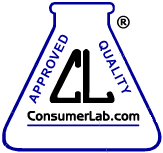 14 brands were
14 brands were  Â The UK Food Standards Agency (FSA) has
 The UK Food Standards Agency (FSA) has  Researchers from The University of Texas M. D. Anderson Cancer Center in Houston and Sabinsa Corporation in Piscataway, New Jersey report on early
Researchers from The University of Texas M. D. Anderson Cancer Center in Houston and Sabinsa Corporation in Piscataway, New Jersey report on early  Curcuma longa (aka turmeric) shows a favorable
Curcuma longa (aka turmeric) shows a favorable